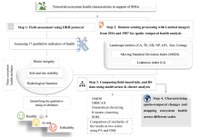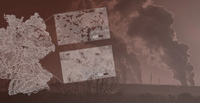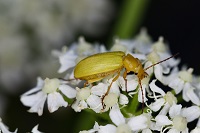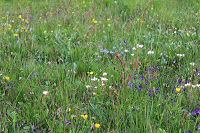Division of Landscape Ecology and Landscape Planning
- Landscape Ecology & Landscape Planning
-
Landscape Ecology & Landscape Planning
We, the Landscape Ecology and Landscape Planning lab, are working on the effects of climate change, land use change and invasive species on biodiversity and ecosystem functioning from the plot to the landscape scale using field-based approaches as well as methods of remote sensing. In addition to questions of basic scientific research, we also focus on topics related to nature conservation and restoration ecology. We are curios, open-minded and oriented towards interdisciplinarity, so we cover a broad range of topics and methods in both teaching and research.

Monitoring Sustainable Development Goals from Space
A recent study led by M. Sc. Mojdeh Safaei and co-authored by Dr. André Große-Stoltenberg and Prof. Dr. Till Kleinebecker shows how satellite data can contribute to map degradation of drylands. The study illustrates the potential of remote sensing for monitoring Sustainable Development Goals such as SDG15 "Life on Land" and "Land Degradation Neutrality".
The study was published in the journal Landscape Ecology and is freely available under the following link: https://rdcu.be/cOp2u

Study about the potential of agroforestry for carbon sequestration featured as title story
A recent study co-authored by Dr. André Große-Stoltenberg und Prof. Dr. Till Kleinebecker about the importance of small woody features (SWFs) and agroforestry for carbon sequestration in Germany was selected as a title story in the open access journal Land . Click here for the news on Twitter .

A recent study co-authored by Dr. André Große-Stoltenberg und Prof. Dr. Till Kleinebecker shows that small woody features (SWFs) sequester more than 100 Tg of carbon in Germany. An increase of woody landscape structures through establishment of agroforestry systems especially in structurally poor agrarian landscapes could store an extra of 0.2 - 2 Tg per year. The study was published in the open access journal Land : https://www.doi.org/10.3390/land10101028

Für das vom HLNUG geförderte Projekt
MonA
konnten bei bestem Drohnenwetter die ersten Flugkampagnen in den Stromtalwiesen bei Riedstadt unter Leitung von Niklas Schnepel und Dr. André Große-Stoltenberg durchgeführt werden. Ziel des Projektes ist es, ein fernerkundungsbasiertes Monitoring für naturschutzrelevante Pflanzenarten zu entwickeln.
Zur
Pressemitteilung der Kooperationspartner der Stadt Riedstadt
. Foto: Stadt Riedstadt

Das Acker-Projekt ( Einfluss innovativer Mähdrusch-Technik auf die Artenvielfalt in der Agrarlandschaft ) wird auf den Seiten des BfN als Projekt des Monats Juni vorgestellt. In dem Erprobungs- und Entwicklungsvorhabens (E+E-Vorhaben) wird ein Verfahren getestet und optimiert mit dem Samen von Ackerwildkräutern bei der Ernte des Getreides aufgefangen werden. ( Zum Projekt des Monats )
In der Studie „Mowing machinery and migratory sheep herds are complementary dispersal vectors for grassland species“ wird die Samenausbreitung durch Mähmaschinen und Schaf-Endozoochorie hinsichtlich der transportierten Arten und ihrer funktionellen Eigenschaften untersucht. Es wird gezeigt, dass für die Erhaltung von Grünland-Ökosystemen mehrere Ausbreitungswege berücksichtigt werden sollten. ( Zur Publikation )
Verar
 mte Flora in Wiesen und Wäldern gefährdet Insekten
mte Flora in Wiesen und Wäldern gefährdet Insekten
Wo aufgrund intensiver Landnutzung die pflanzliche Vielfalt abnimmt, leben weniger Insekten und die Biodiversität nimmt insgesamt ab. Dies zeigt eine aktuelle Studie mit Beteiligung von Prof. Dr. Till Kleinebecker, die in Science Advances veröffentlicht wurde.
Zur Publikation:
doi: 10.1126/sciadv.abf3985
Zur Pressemitteilung
INTECOL Session "Circular bioeconomy for sustainable agriculture"
S4.4 Circular bioeconomy for sustainable agriculture
(Rainer Waldhardt, Adriana Marcela Gómez Mateus, Labinot Kryeziu)
The session will discuss how upcycling unused biomass can contribute to sustainable agro-systems.
Submit your abstract before March 31st, 2022:









